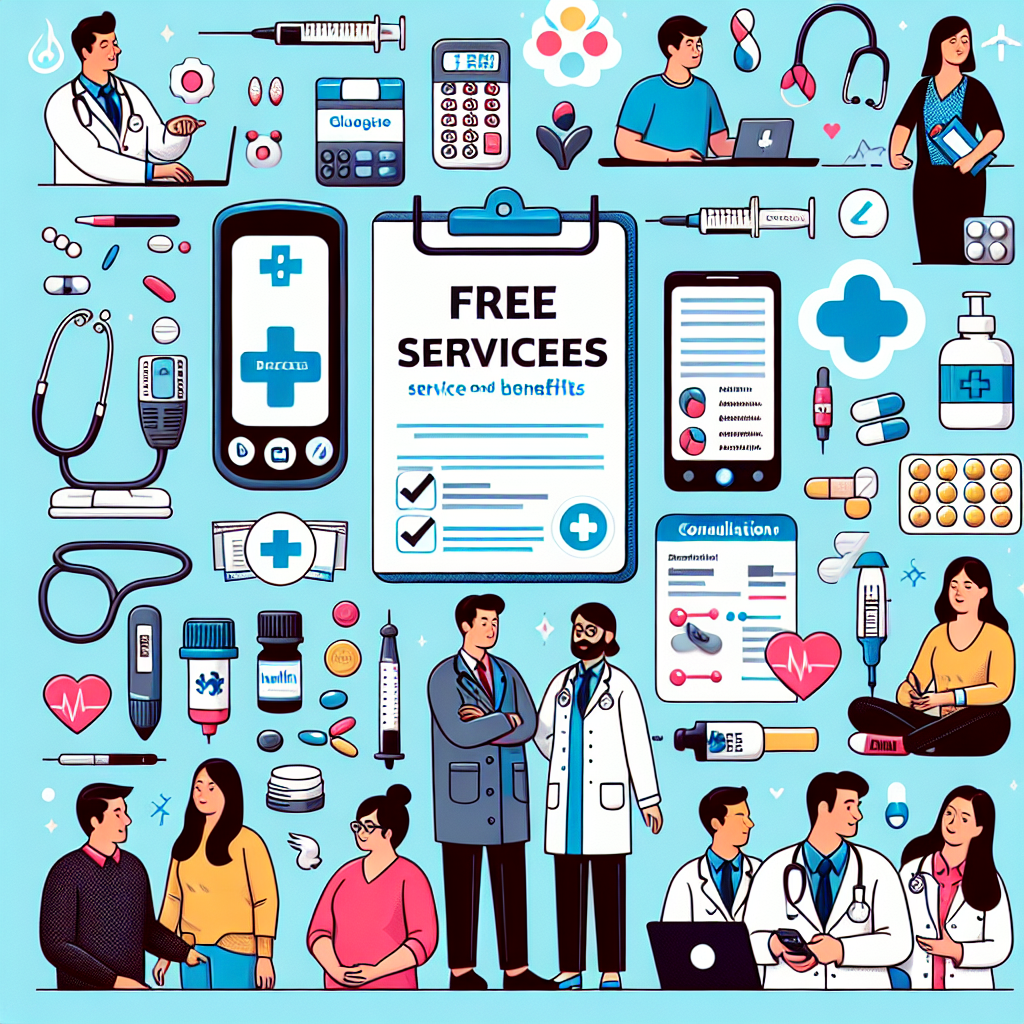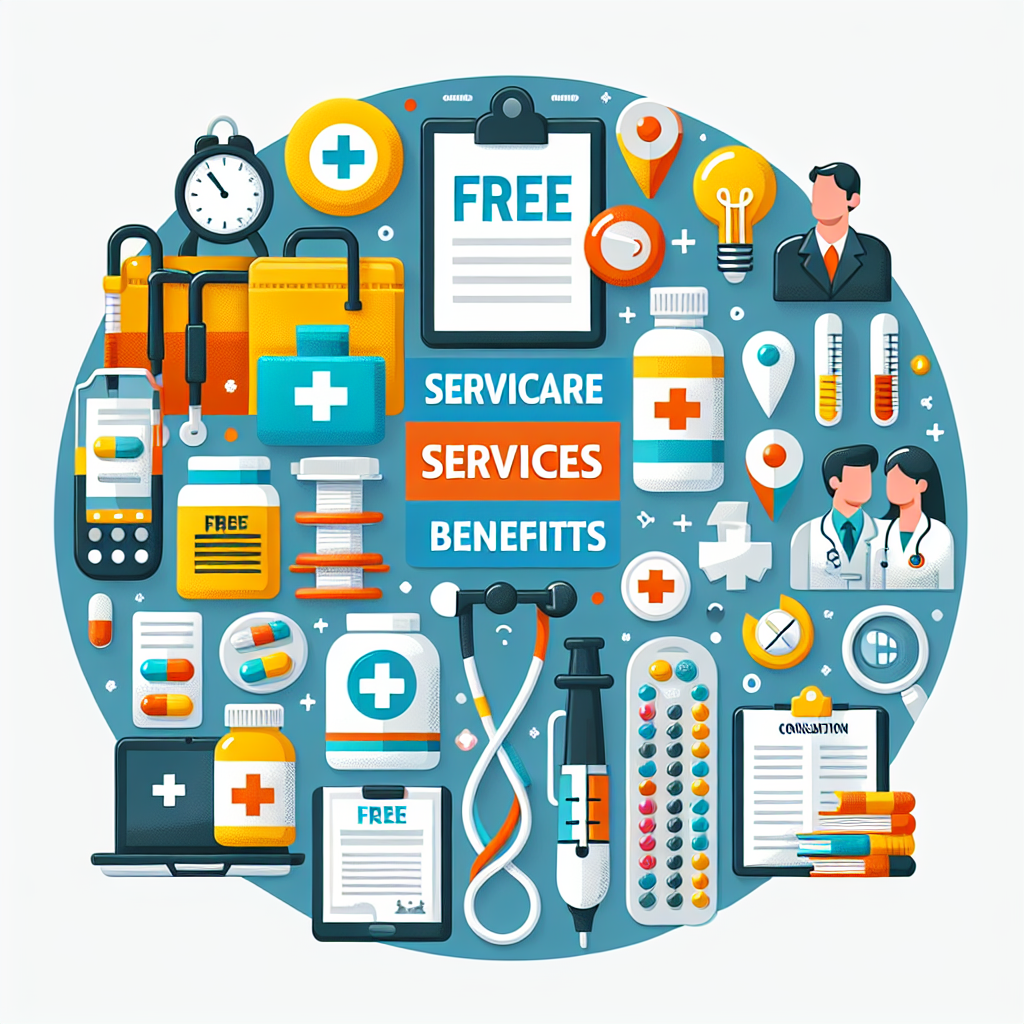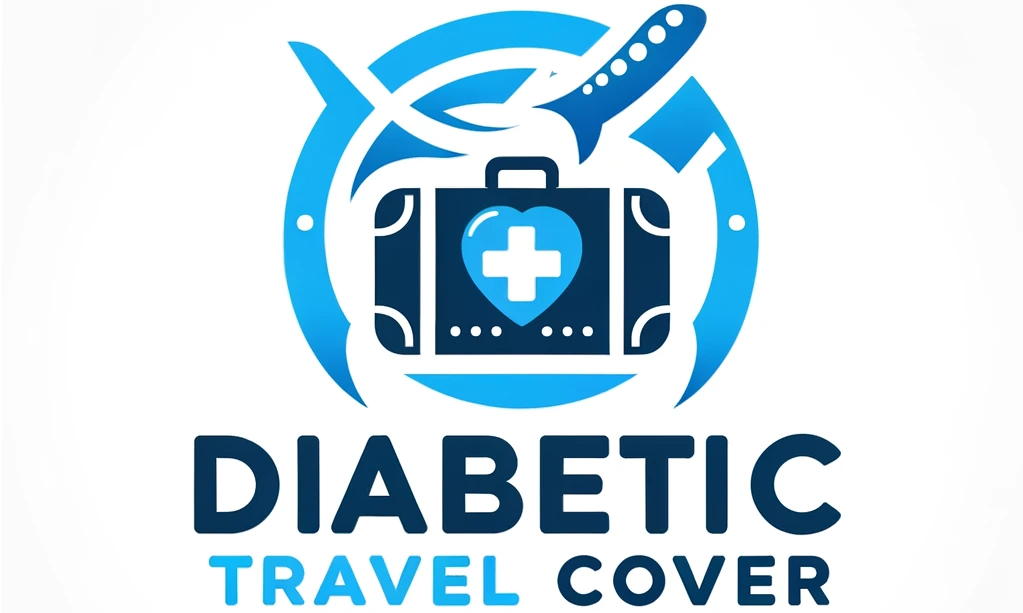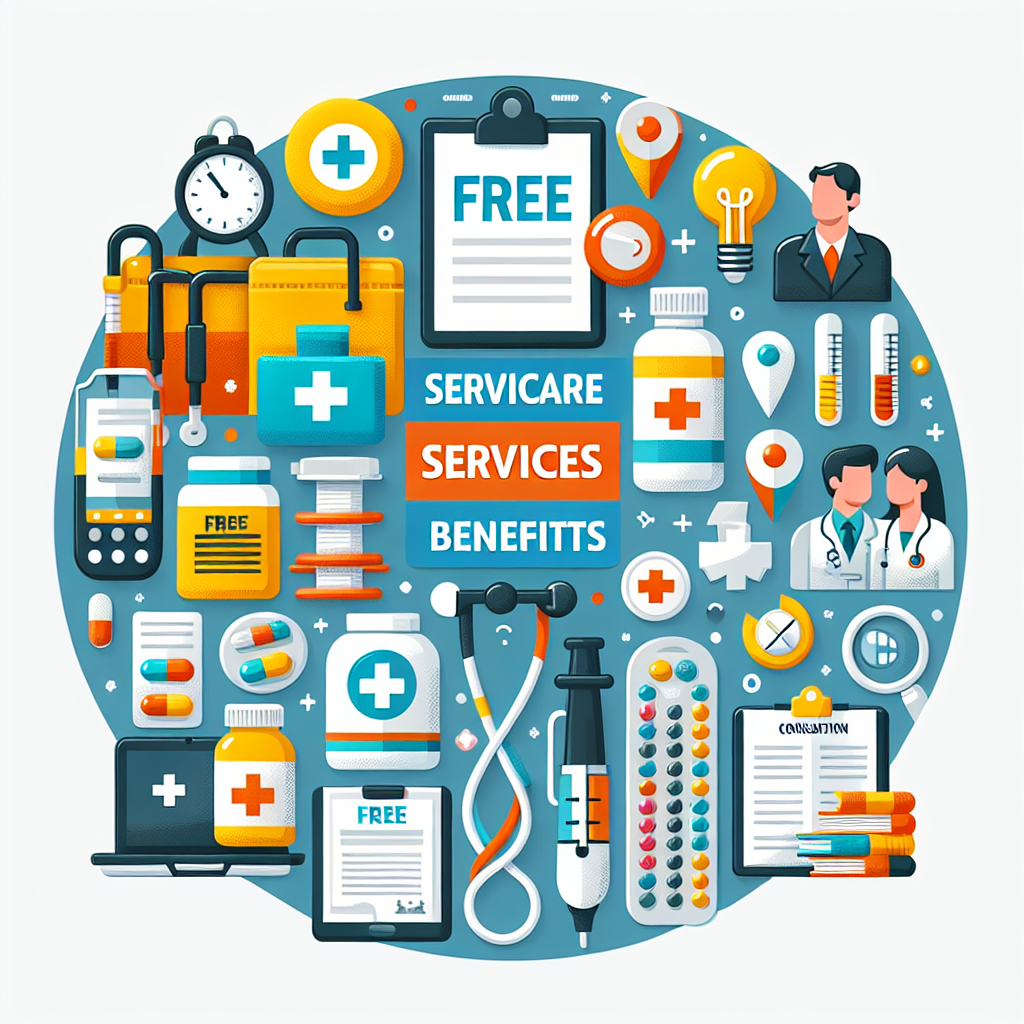In this article, discover the array of beneficial resources and services available to individuals living with diabetes. From free educational materials and classes, to essential medical supplies and medications, diabetics can take advantage of a wide range of initiatives aimed at supporting their well-being. Explore the invaluable assistance provided to diabetics, ensuring they have the tools and knowledge necessary to effectively manage their condition and lead a fulfilling life.
Testing Supplies
Blood glucose meters
One of the essential testing supplies for diabetics is blood glucose meters. These devices are used to measure the glucose levels in your blood. With just a small drop of blood, you can easily monitor and keep track of your blood sugar levels. Blood glucose meters are user-friendly and come in various models to cater to different needs and preferences.
Test strips
Test strips are another crucial component of testing supplies for diabetics. These small disposable strips are used in conjunction with your blood glucose meter to provide accurate readings of your blood sugar levels. They are typically placed on the meter, and a small blood sample is applied to the strip. The meter then analyzes the strip and displays the glucose levels on its screen. Test strips are usually available in packs, allowing you to have an adequate supply for regular monitoring.
Lancets
Lancets are tiny needles that are used to prick your finger for blood sampling. They are typically included as part of testing supplies and are designed to minimize pain and discomfort. Lancets come in various gauges, allowing you to choose the most suitable one for your needs. These essential tools ensure a safe and efficient way to collect blood samples for glucose level testing.
Medications
Insulin
Insulin is a vital medication for individuals with diabetes who require external insulin for blood sugar control. This hormone is responsible for regulating the glucose levels in your body. Depending on your specific needs, insulin can be administered through injections or an insulin pump. The cost of insulin can be a significant concern for many diabetics, but fortunately, it is often included in insurance coverage or available at low or no cost through various assistance programs.
Oral medication
In addition to insulin, there are various oral medications available to manage diabetes. These medications are typically prescribed to individuals with type 2 diabetes and work by helping your body better utilize the insulin it produces or by reducing glucose production in the liver. Some commonly prescribed oral medications for diabetes include metformin, sulfonylureas, and thiazolidinediones. The availability and coverage of oral medications may vary depending on your insurance plan and other factors, but many individuals with diabetes can access these medications at an affordable cost.

Diabetes Education
Diabetes self-management education
Diabetes self-management education is a vital resource that provides individuals with the knowledge and skills necessary to effectively manage their diabetes. This type of education covers various topics, including understanding blood sugar monitoring, proper insulin administration, healthy eating habits, exercise recommendations, and how to prevent complications. Many healthcare providers offer diabetes self-management education programs either in-person or online. These programs are often covered by insurance or provided at low or no cost through community organizations.
Nutrition counseling
Proper nutrition plays a significant role in managing diabetes. Nutrition counseling can help you understand the impact of different foods on your blood sugar levels and provide guidance on creating a well-balanced diet. Registered dietitians or nutritionists specializing in diabetes can work with you to develop personalized meal plans and teach you practical strategies for healthier eating. Many insurance plans cover nutrition counseling, making it an accessible resource for diabetics.
Exercise programs
Regular physical activity is essential for diabetes management. Exercise programs tailored to individuals with diabetes can provide guidance on the types and frequency of exercises that are beneficial for blood sugar control. These programs often include a combination of cardiovascular exercises, strength training, and flexibility exercises. Many healthcare providers and community organizations offer exercise programs specifically designed for diabetics. Some insurance plans may cover the cost of these programs or offer discounts for gym memberships.
Preventive Services
Annual eye exams
Routine eye exams are crucial for individuals with diabetes to detect any diabetic retinopathy, a common eye complication associated with high blood sugar levels. These exams, conducted by eye care professionals, can help identify any abnormalities or changes in your eyes that require intervention. Regular eye exams allow for early detection and treatment, reducing the risk of vision loss or blindness. Most insurance plans cover annual eye exams for diabetics.
Foot exams
Diabetes can lead to foot complications, such as nerve damage and poor blood circulation. Regular foot exams are essential to monitor for any signs of these complications and prevent further issues. Foot exams typically involve checking for skin problems, assessing sensation, and examining the blood flow in your feet. Healthcare providers specializing in diabetes care can perform these exams and provide guidance on proper foot care. Most insurance plans cover the cost of foot exams for diabetics.
Vaccinations
Vaccinations are an essential preventive measure for individuals with diabetes. Vaccines protect against various illnesses and infections that can be particularly dangerous for diabetics. Some recommended vaccines for diabetics include the annual flu vaccine, pneumonia vaccine, and hepatitis B vaccine. These immunizations not only safeguard your health but also prevent any complications that may arise due to infections. Many insurance plans cover the cost of vaccinations.

Health Screenings
A1C tests
The A1C test is a blood test that measures your average blood sugar levels over the past couple of months. This test is crucial for monitoring long-term diabetes management and evaluating the effectiveness of your treatment plan. Healthcare providers typically recommend regular A1C tests to ensure your blood sugar levels are within the target range. Most insurance plans cover the cost of A1C tests for diabetics.
Cholesterol tests
Individuals with diabetes are at a higher risk of developing high cholesterol levels, which can increase the risk of heart disease. Regular cholesterol tests help monitor your lipid profile and identify any necessary interventions or adjustments to your medication. Doctors often recommend these tests at least once a year for diabetics. Insurance plans typically cover cholesterol tests.
Blood pressure checks
High blood pressure is a common comorbidity associated with diabetes. Regular blood pressure checks are essential for monitoring your cardiovascular health and ensuring early detection and intervention for any abnormalities. Blood pressure checks may be conducted during routine medical visits or at specialized clinics. Most insurance plans cover the cost of blood pressure checks.
Specialized Footwear
Custom shoes
Individuals with diabetes who have foot complications or specific foot needs may benefit from custom shoes. These shoes are designed to provide optimal support, cushioning, and protection for your feet, reducing the risk of injuries and ulcers. The process involves taking measurements and creating a shoe that perfectly fits your foot shape and size. Custom shoes may be covered by insurance if they are deemed medically necessary.
Orthotic inserts
Orthotic inserts are customized shoe inserts that help support your feet and correct any foot imbalances or abnormalities. These inserts can provide relief from foot pain and enhance your overall foot function. They can also help prevent foot ulcers and other complications associated with diabetes. Orthotic inserts are often covered by insurance, although coverage may vary depending on your specific plan.

Psychological Support
Counseling services
Managing diabetes can be emotionally challenging, and counseling services can provide valuable support for individuals dealing with the mental and emotional aspects of the condition. Counselors or therapists can help you cope with the stress, anxiety, and any other emotional difficulties related to diabetes. These professionals are trained to assist you in developing healthy coping mechanisms and fostering a positive mindset. Many insurance plans cover counseling services.
Support groups
Joining a support group can provide a sense of community and shared experiences for individuals with diabetes. These groups typically consist of individuals who can relate to the challenges of managing diabetes and offer support, guidance, and encouragement. Support groups can be both in-person and online, allowing you to connect with others regardless of your location. Many healthcare organizations and nonprofit groups offer support groups for diabetics, often at no cost.
Coverage for Oral Health
Dental exams
Routine dental exams are essential for maintaining good oral health, especially for individuals with diabetes. Diabetes can increase the risk of gum disease and other oral complications. Regular dental exams help detect any issues early on, preventing further dental problems. Most insurance plans cover dental exams for diabetics.
Teeth cleanings
Professional teeth cleanings are crucial for removing plaque buildup and maintaining a healthy mouth. Regular cleanings can help prevent gum disease and tooth decay, which can be more prevalent in individuals with diabetes. Dental cleanings are typically covered by insurance, ensuring that diabetics can access this vital preventive service.

Pregnancy Services
Gestational diabetes care
Gestational diabetes occurs during pregnancy and can pose risks to both the mother and baby. Proper care and management are essential in these cases. Pregnant women with gestational diabetes often receive specialized medical care, including monitoring blood sugar levels, dietary recommendations, and potential insulin administration. Most insurance plans cover the necessary medical services for gestational diabetes.
Prenatal vitamins
To support a healthy pregnancy, women with diabetes may be prescribed prenatal vitamins. These vitamins provide essential nutrients for the mother and the developing baby. Prenatal vitamins typically include folic acid, calcium, iron, and other nutrients necessary for fetal development. Insurance plans often cover the cost of prenatal vitamins for women with diabetes.
Emergency Resources
24/7 hotline
In case of emergency, having access to a 24/7 hotline can provide immediate assistance and guidance. Hotlines staffed by healthcare professionals are available to answer questions, offer support, and provide appropriate advice for managing diabetes-related emergencies. It is essential to have the hotline number readily available in case of emergencies.
Emergency medical assistance
Individuals with diabetes may occasionally require emergency medical assistance due to severe hypo or hyperglycemia or other diabetes-related complications. Emergency medical services ensure you receive prompt and appropriate care when facing life-threatening situations. Healthcare insurance plans typically cover emergency medical care, allowing you to seek immediate assistance when needed.
In conclusion, individuals with diabetes can access a wide range of free or low-cost resources and services to manage their condition effectively. From testing supplies to medications, education, preventive services, screenings, specialized footwear, psychological support, oral health coverage, pregnancy services, and emergency resources, there are various options available to support and empower those living with diabetes. These resources aim to enhance their quality of life, promote long-term health, and reduce the risks associated with diabetes-related complications. Remember to consult with your healthcare provider and insurance plan to determine the specific coverage available to you and take full advantage of the support and services offered.


